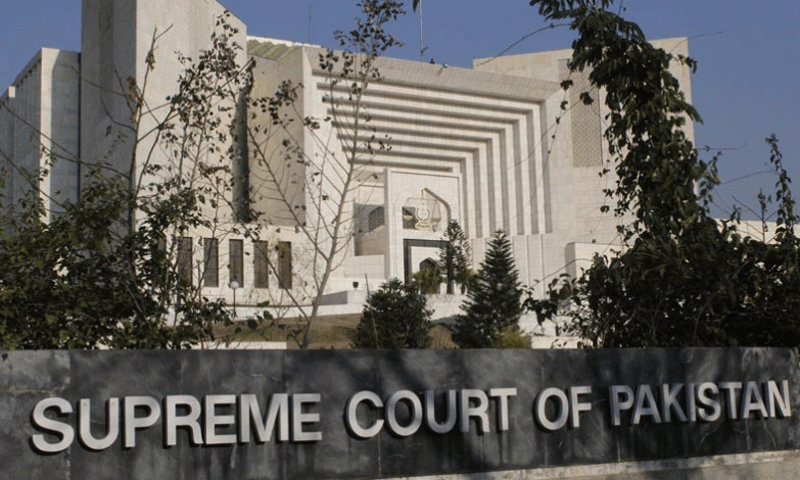Pakistan court urged to honor ‘will of people’ in case over seats granted to Khan ally
SIC lawyer insists that the Supreme Court should not allow procedural barriers to override the electorate’s intent

Aamir Abbasi
Editor, Islamabad
Aamir; a journalist with 15 years of experience, working in Newspaper, TV and Digital Media. Worked in Field, covered Big Legal Constitutional and Political Events in Pakistan since 2009 with Pakistan’s Top Media Organizations. Graduate of Quaid I Azam University Islamabad.

Pakistan’s top court on Tuesday continued hearing a high-stakes case to review its earlier ruling that granted reserved parliamentary seats to the Sunni Ittehad Council (SIC), the party joined by PTI-backed independent candidates after the 2024 general elections, as the SIC’s lawyer urged the bench to consider the matter through the lens of “complete justice” and the will of the people.
SIC counsel Faisal Siddiqi made the plea while concluding his arguments before the 11-member constitutional bench, led by Chief Justice Yahya Afridi. He framed the case as central to the integrity of parliamentary representation in a democracy, urging the court to look beyond procedural hurdles.
At the heart of the dispute is whether independent candidates backed by PTI -- who contested the 2024 elections without a party symbol after PTI was barred from using its iconic cricket bat -- could subsequently join SIC and claim a proportional share of reserved seats in parliament.
The hearing
Presenting his arguments, Siddiqi urged the court to evaluate the case not merely as a technical legal issue but as one that strikes at the core of democratic representation and the constitutional will of the electorate.
“I’m absolutely clear about this. If your Lordships are of the view that this litigation has to be looked at through the lens of ordinary litigation and it is not about complete justice, then your Lordships should allow the review,” Siddiqi said.
“But if your Lordships are of the view that this is a case which involves the most important thing of our constitutional framework -- that the will of the people must be represented in parliament, both in terms of general seats as well as in the reserved seats -- your Lordships must exercise complete justice. That’s the right approach.”
Siddiqi maintained that the Supreme Court should not allow procedural barriers to override the electorate’s intent. “It is only when your Lordships are convinced about complete justice that we will not let the will of the people of Pakistan be defeated by technicalities,” he said.
Throughout the hearing, members of the bench questioned whether the move by PTI-backed independents to join SIC had been made voluntarily and whether the original ruling stretched beyond the Court’s constitutional authority.
Siddiqi responded that the unique post-election scenario required the Court to apply Article 187 -- which empowers it to ensure “complete justice” -- and uphold the broader constitutional principle of fair representation.
Before adjourning for the day, the court received additional documents, including testimony related to alleged electoral fraud and a recent parliamentary amendment that expanded the Supreme Court’s bench.
Proceedings will resume on Wednesday, with arguments expected from Salman Akram Raja, representing PTI, and the advocate general of Khyber Pakhtunkhwa.
Earlier in the proceedings, the Election Commission of Pakistan and representatives of various political parties had already concluded their submissions.
Background to the controversy
The dispute traces back to the 2024 general elections, when the ECP barred PTI from using its iconic cricket bat symbol due to internal procedural violations. PTI-backed candidates contested as independents and won a significant number of seats. After the elections, over 80 of them joined the SIC, a little-known religious party.
The SIC then requested proportional representation on reserved seats for women and minorities in national and provincial legislatures — a right granted to political parties under Pakistan’s Constitution. However, the ECP rejected the request, saying SIC had failed to submit a list of reserved candidates before the election, a mandatory constitutional requirement.
That decision was upheld by the Peshawar High Court, but overturned by the Supreme Court in an 8–5 ruling on July 12, which critics said overstepped constitutional limits, while others saw it as a correction to uphold representation. Legal experts and rival parties accused the court of judicial overreach for creating a 15-day post-election window for independents to join a party — a provision not found in Article 51(6) of the Constitution, which only allows a 3-day window.
Review petitions were soon filed by the ECP, PPP, and PML-N, challenging not only the allocation of seats but also the legal basis of the judgment itself.







Comments
See what people are discussing